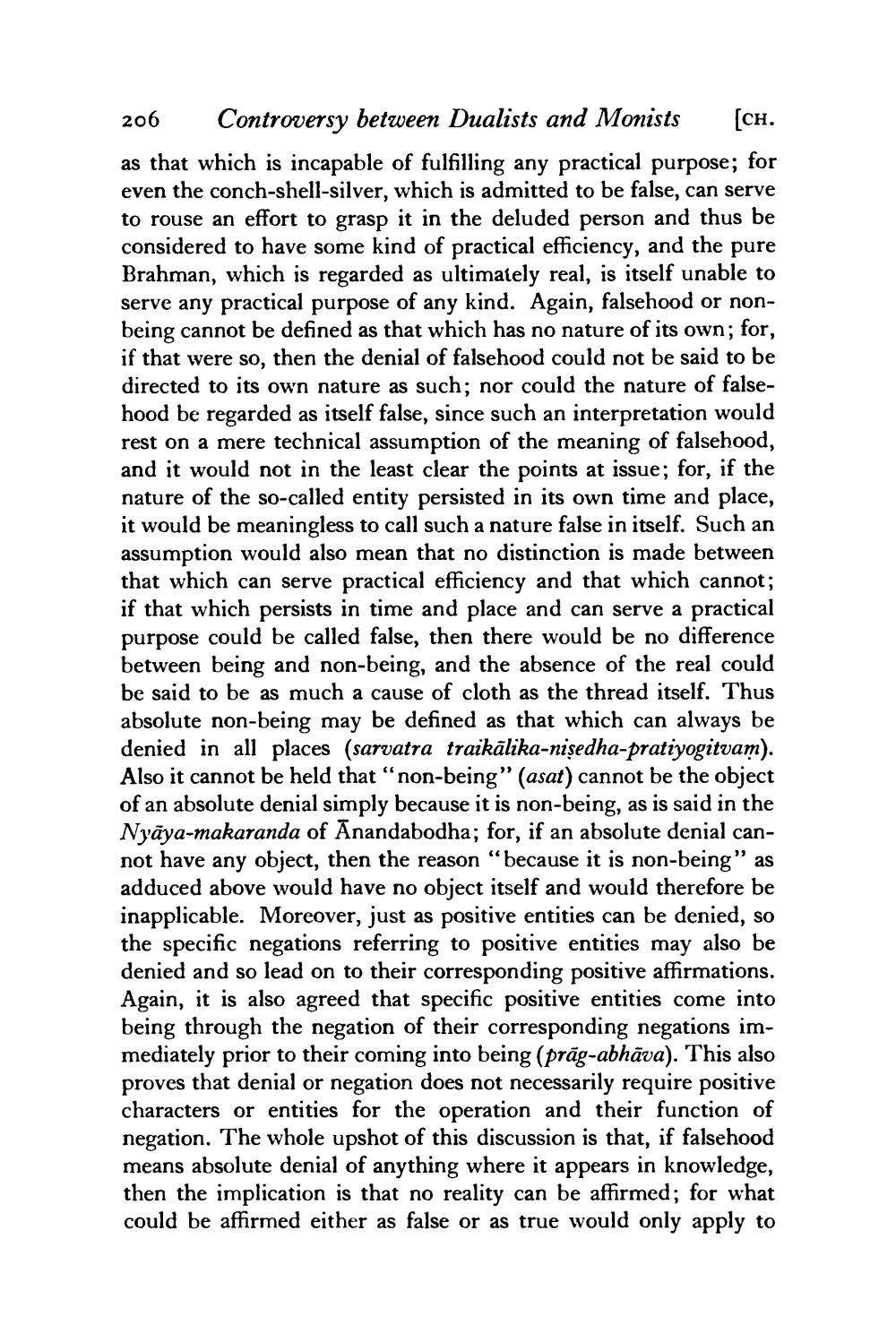________________
206 Controversy between Dualists and Monists [CH. as that which is incapable of fulfilling any practical purpose; for even the conch-shell-silver, which is admitted to be false, can serve to rouse an effort to grasp it in the deluded person and thus be considered to have some kind of practical efficiency, and the pure Brahman, which is regarded as ultimately real, is itself unable to serve any practical purpose of any kind. Again, falsehood or nonbeing cannot be defined as that which has no nature of its own; for, if that were so, then the denial of falsehood could not be said to be directed to its own nature as such; nor could the nature of falsehood be regarded as itself false, since such an interpretation would rest on a mere technical assumption of the meaning of falsehood, and it would not in the least clear the points at issue; for, if the nature of the so-called entity persisted in its own time and place, it would be meaningless to call such a nature false in itself. Such an assumption would also mean that no distinction is made between that which can serve practical efficiency and that which cannot; if that which persists in time and place and can serve a practical purpose could be called false, then there would be no difference between being and non-being, and the absence of the real could be said to be as much a cause of cloth as the thread itself. Thus absolute non-being may be defined as that which can always be denied in all places (sarvatra traikālika-nişedha-pratiyogitvam). Also it cannot be held that “non-being" (asat) cannot be the object of an absolute denial simply because it is non-being, as is said in the Nyāya-makaranda of Anandabodha; for, if an absolute denial cannot have any object, then the reason “because it is non-being" as adduced above would have no object itself and would therefore be inapplicable. Moreover, just as positive entities can be denied, so the specific negations referring to positive entities may also be denied and so lead on to their corresponding positive affirmations. Again, it is also agreed that specific positive entities come into being through the negation of their corresponding negations immediately prior to their coming into being (prāg-abhāva). This also proves that denial or negation does not necessarily require positive characters or entities for the operation and their function of negation. The whole upshot of this discussion is that, if falsehood means absolute denial of anything where it appears in knowledge, then the implication is that no reality can be affirmed; for what could be affirmed either as false or as true would only apply to




